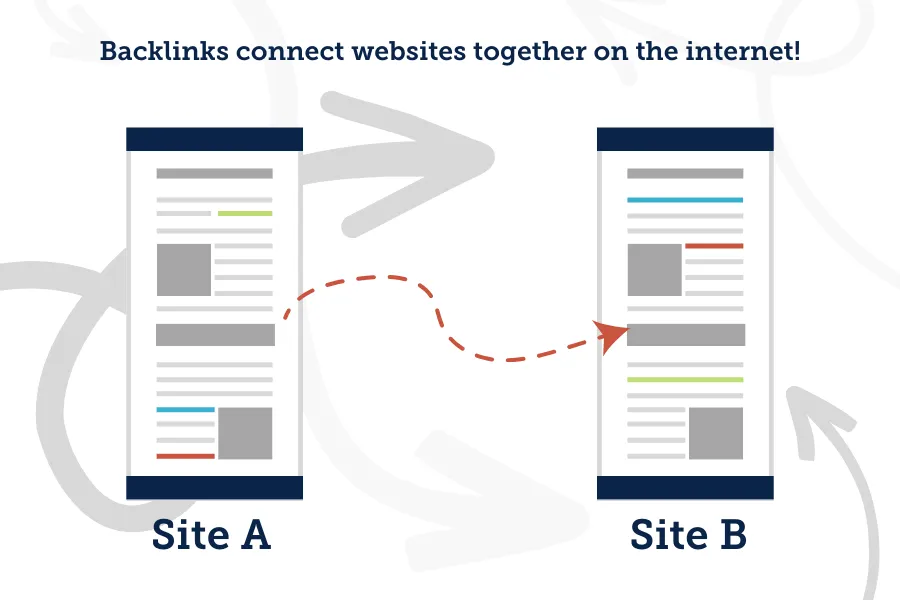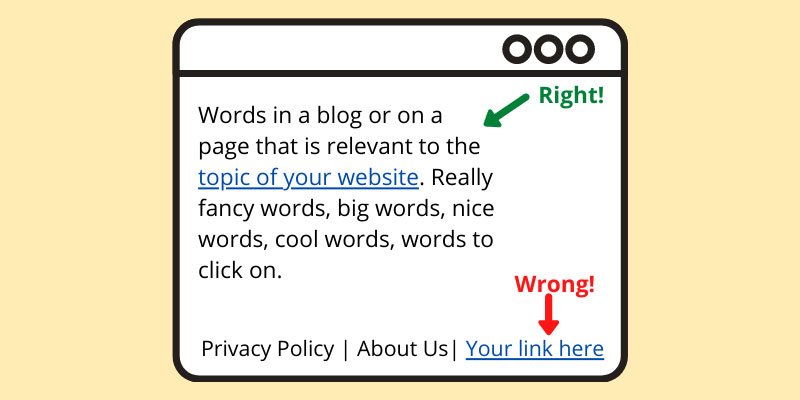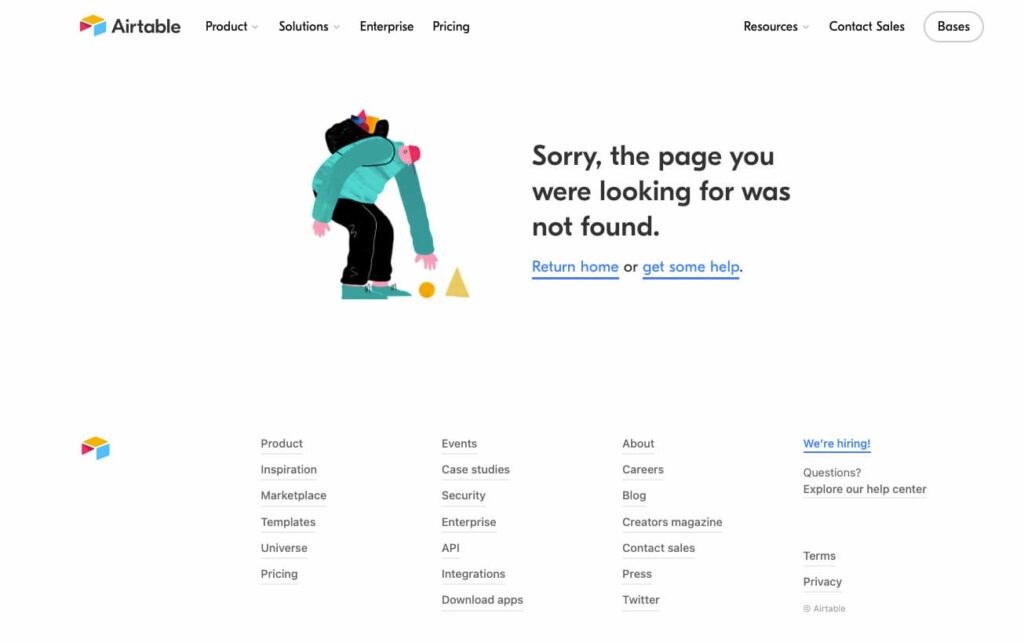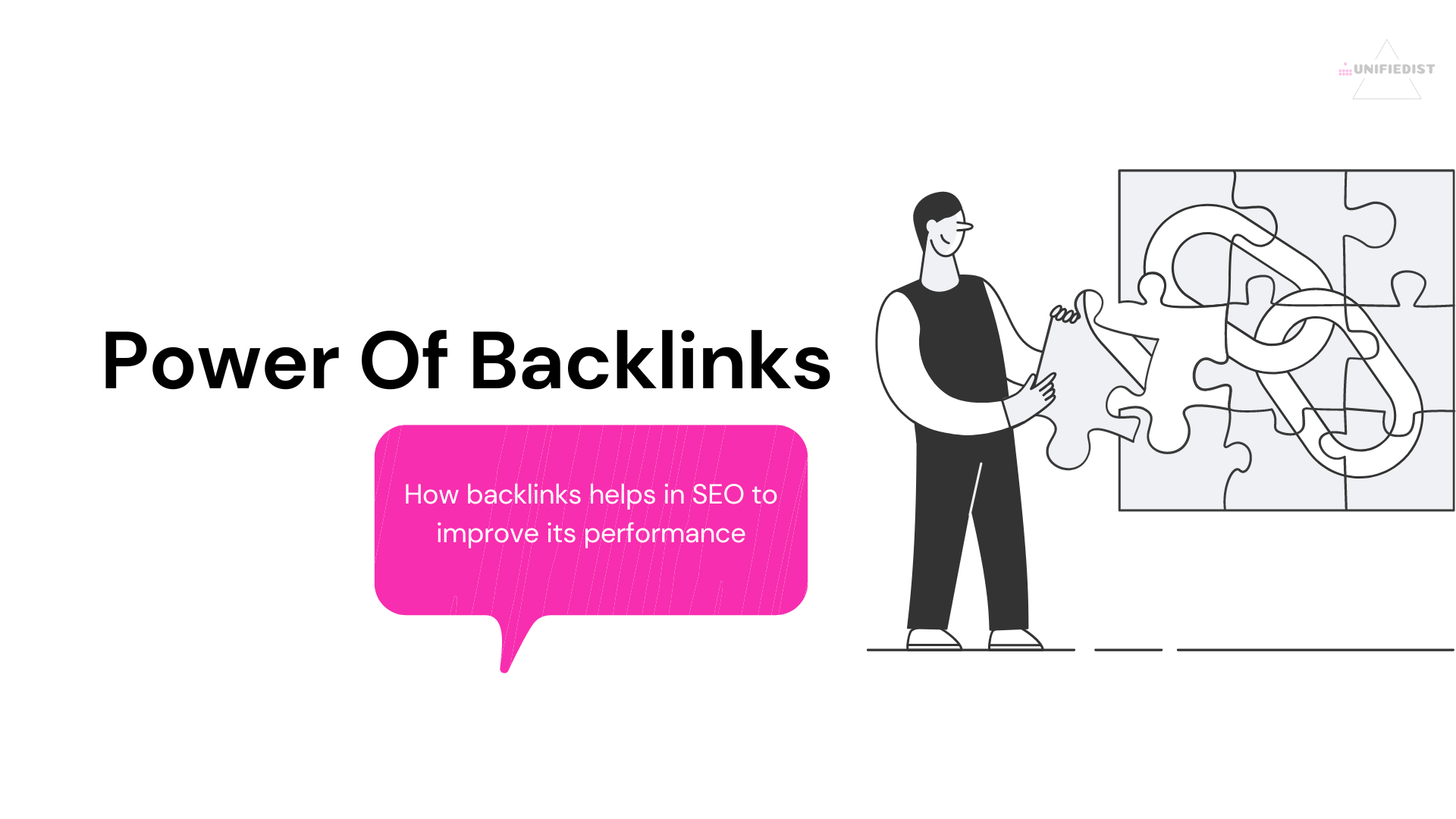Millions of websites are battling for search engine result pages and are influenced by many factors. How can it get more qualified website traffic by helping you rank in search engine results pages?
Backlinks are the confidence from one website to another, a compelling indication of value to Google, and to stand out in a crowded marketplace; you must find ways to bring new customers to you. 95% of all the pages have zero backlinks, but the first results have an average of 3.8 times more backlinks than those that rank 2 to 10. The more backlinks you have, the more likely you are to outrank your competitors.
In this blog post, we explore how backlinks help to improve SEO and discuss whether they’re still important.
What are Backlinks?
Backlink is a link from one website to another. Backlinks can signify traffic from another website to your website. Backlinking can also allow you to build relationships with other web owners, increase brand awareness, and drive more traffic to your site.
For example, if a site (Website A) introduces a link to a blog post comparing a specific topic (Website B). Website B receives a vote of confidence – or backlink – from Website A.

Image Source – rivalmind
Benefits of Backlinks: How It Impact SEO
- Improved Search Engine Ranking
Backlinks are crucial in search engine optimization (SEO). High-quality, relevant backlinks can significantly enhance your website’s ranking in search engine results. Overall, this technique helps you to increase organic (unpaid) traffic to your site.
- Increased Website Traffic
Backlinks can bring direct traffic to your website. When users click on a link from another site and land on your page, it can result in more visitors. This referral traffic can lead to conversions, such as sales, sign-ups, or other desired actions.
- Enhanced Credibility and Authority
Backlinks from reputable and authoritative websites can boost your website’s credibility and authority in your niche or industry. When respected sources link to your content, your information is valuable and trustworthy.
- Better User Experience
Backlinks can help users find valuable and relevant content on different websites. It can also improve the user experience by providing additional information or resources if your site contains relevant backlinks to authoritative sources.
- Faster Indexing
Search engines use backlinks to discover new web pages. When a search engine crawler follows a backlink to your site, it can lead to faster indexing of your content, which means your new content gets included in search results more quickly.
- Niche Authority
By earning backlinks from websites within your niche or industry, you can establish yourself as an authority in that field, leading to more industry partnerships, collaborations, and opportunities.
- Increased Social Proof
Backlinks can serve as a form of social proof. When visitors see that other reputable websites link to your content, it can enhance your site’s perceived value and encourage them to trust and engage with your content.
- Diversification of Traffic Sources
Relying solely on one traffic source, such as paid advertising or social media, can be risky. Backlinks provide another avenue for traffic, helping you diversify your sources and reduce dependency on a single channel.
- Brand Exposure
Backlinks can expose your brand to a broader audience. When your content is linked to various websites, more people come into contact with your brand and message.
- Competitive Advantage
Outranking competitors in search results often involves having a superior backlink profile. You can gain a competitive advantage in your niche by building robust quality backlinks.
How Backlinks Help to Improve SEO
Backlinks are essential for SEO because Google views some backlinks like recommendations. The more backlinks a site has, the more trustworthy it’s perceived if those backlinks come from authoritative sources.
Backlinks in SEO improve your rankings because they view the quality and quantity of the links as authoritative. Also, they develop votes of confidence from other websites. The higher it can rank for search terms if you have more backlinks for your website.
Are all backlinks valuable for SEO?
Not all backlinks are beneficial for SEO. For starters, nofollow links tell search engines not to pass link equity to the target site. Google also ignores backlinks that appear in low-quality or irrelevant content or on unestablished or spammy sites because it doesn’t trust them enough to influence its results.
Nofollow links include one of these nofollow attributes in their code:
rel=“nofollow” – This lets Google know the linking site does not endorse the target site.
rel=“sponsored” – This shows that the target site paid for the placement link.
rel=“ugc” – This shows that the link appears within user-generated content.
Best Practices In Getting Backlinks
Getting backlinks with proper anchor text is indeed important for SEO (Search Engine Optimization) purposes. Anchor text refers to the clickable text in a hyperlink. Here are some tips for acquiring backlinks with appropriate anchor text:
- Relevance: Ensure that the anchor text is relevant to the content it’s linking to. This helps search engines understand the context of the link.
- Variety: Use a variety of anchor texts rather than just focusing on one keyword. This looks more natural to search engines and helps prevent over-optimization penalties.
- Natural Language: Use natural language in your anchor text. It should flow seamlessly within the content and not appear forced or overly optimized.
- Keyword Research: Conduct keyword research to identify relevant and effective anchor text phrases. Use tools like Google Keyword Planner or SEMrush to find suitable keywords.
- Brand Name: Use your brand name as anchor text, especially when acquiring backlinks from authoritative sources. This helps in brand recognition and builds credibility.
- Descriptive Anchor Text: Opt for descriptive anchor text that accurately describes the content it’s linking to. This enhances user experience and helps search engines understand the context of the link.
- Avoid Over-Optimization: Avoid using exact match anchor text excessively, as it can appear spammy to search engines. Instead, focus on a mix of branded, generic, and partial match anchor texts.
- Earn Links Naturally: Focus on creating high-quality content that naturally attracts backlinks from reputable websites. Engage in guest blogging, influencer outreach, and content promotion strategies to earn organic backlinks.
- Internal Linking: Utilize internal linking to establish a hierarchy and context within your website. This also helps distribute link authority throughout your site.
- Monitor and Adjust: Regularly monitor your backlink profile and anchor text distribution. If you notice any issues or over-optimization, adjust your strategy accordingly.
By following these guidelines, you can acquire backlinks with proper anchor text that positively impact your SEO efforts while maintaining a natural and user-friendly approach.

Image Source- multiversemediagroup
Another essential thing you must remember is to avoid building backlinks that violate Google’s link spam policies, sometimes called toxic backlinks. They can lead to a Google penalty or manual action that harms your SEO.
Bad Practices
- Exchanging money, goods, or services for following links
- Link exchanges
- Creating links to your site by using automated programs
- Spammy way of forcing keywords into anchor text
What Are the Best Backlinks in SEO?
You might already know that high-quality do-follow backlinks are hard to come by, but how do you get backlinks for your website?
The most valuable backlinks in SEO:
- Are follow links
- Are naturally placed within relevant content
- Point to high-quality, functional pages
- Come from established and reputable websites
- Use natural anchor text that is relevant
There are three ways to get more backlinks: create, earn, or build them.
- Creating backlinks: Manually adding links to your site from other websites. Examples include leaving blog comments, submitting to business directories, and replying to forum threads.
- Earning backlinks: Organically discover the web pages by people via search engines and social media, then choose to link to your page. Creating high-quality content that people will want to link to is best to improve your chances of earning more backlinks,
- Building backlinks: Also referred to as ‘link building,’ is actively acquiring backlinks. For this to work, you need to have a clear value proposition, and It is done when you reach out to other site owners, writers, or editors and ask them to link to your page.
The more high-quality backlinks you can build, the better, but variety is essential, too. Try to pursue backlinks on different websites with varying target pages and other anchor texts. Otherwise, your backlink profile could appear spammy and unnatural.
How to Get Backlinks to Your Site
Link building is a time-consuming process requiring trial and error to increase brand awareness, referral traffic, and search engine rankings. Moreover, it is an effective strategy for boosting your brand. It also helps you to highlight your expertise, credibility, and relationships with others within your industry.
Now, let’s discuss some ways to generate high-quality backlinks to your site
1. Create High-Quality Content
Creating quality content that people naturally want to link to is one of the best ways to earn SEO backlinks. This content can be informational, thought-provoking, funny, etc, as long as people like to link to it.
Quality content is how relevant, engaging, and valuable your content is for your audience, which is well-researched and tailored to meet the audience’s needs and goes beyond words on the page.
You must understand the topic, audience, and industry to create high-quality content.
You can make high-quality, great content in many forms, such as:
- Blog posts
- Videos
- Social media posts
- Ebooks
- Interactive tools
- Templates
- And more
So, you can publish a video or a blog post explaining how to do something. Then, there’s a chance that others in your field could use your content as a reference.
Finding subject matter experts is significant if you create content to improve your SEO rankings.
According to Google’s search engine results, backlinks are one factor they consider to determine how prominent a page should be. This ties in most closely with the following:
- The “A” (authority) portion of Google’s E-E-A-T signals that they train their quality rater workforce to evaluate their job of analyzing the quality of the search engine results.
- This concept of authority largely hinges on whether third-party publications recognize your page as an authoritative source.
- If the content is of good quality, they signal this by linking to or mentioning your publication.
2. Recover Broken Backlinks
Broken backlinks point to non-existent pages on your domain. A broken backlink is a hyperlink that points to a page or resource that does not exist. These linked pages were often deleted or moved without a redirection setup, and when the user or crawler follows a broken link, the server returns a 404.

Having broken links on your site is terrible for user experience and SEO, so you want to periodically check for broken links and fix as many of them as possible.
For the most performance-friendly way to find broken links, we recommend using an off-site solution. Let’s look at some ways to locate your broken links. An SEO audit tool if you can access such a tool like Ahrefs. You will get the Crawl Error reports with the help of Google Search Console. Or you can use free desktop SEO software like Screaming Frog or a free web-based tool like BrokenLinkCheck.
How to do broken link building?
Broken link building involves finding a dead web page and swapping the links to a working page on a site. The idea is that they’ll do this as they want to avoid sending visitors to a dead resource. The broken link-building method has different steps to follow,
- Finding relevant dead links on popular websites
- Then reaching out
- Then, pitch a link to your content as the replacement.
With the right mindset and strategies in place (more on this in the next section), broken link-building can drive great results. It can lead to quick wins when webmasters replace the broken link with yours, and it can help you expand your network of contacts. Building relationships with experts or other content creators in your niche will make them more likely to reach out to you in the future.
Last, if a few high-authority web pages choose a link to your content, you’ll gain several links to boost your SEO rating. You are gaining backlinks with minimal effort, and this is a fast and free way to gain backlinks, which can be made even easier using a broken link checker tool.
3. Analyze Your Competitors’ Backlink Profiles
Competitor backlinking is where you analyze your competitor’s backlinks to understand the benchmarks for the types, quality, and number of backlinks you need. It is an efficient SEO strategy because if people are happy to link to your competitors, they’ll gladly link to you.
Targeting other kinds of backlinks your competitors have already earned is possible.
For example, you can use the skyscraper technique to find rival content that’s earned backlinks, create a better version, and encourage publishers to link to your version instead. Or you could discover publishers that have compared your rivals’ products and convince them to include your product.
You’ll need to research backlinks to determine which competitor backlinks rank well. Analyzing your competitor’s backlink profile (pages and domains linking to a website) means you can gain insight into the link building that might have helped them. A backlink tool like Semrush and Moz Link Explorer can help you find these links to begin targeting those domains in your link-building strategy.

